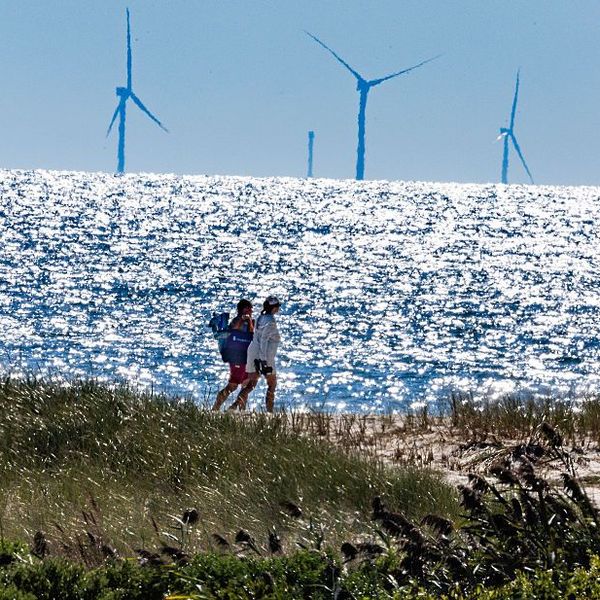BP and the Justice Department announced Thursday the agreement of an $18.7 billion settlement over federal, state, and local claims stemming from the 2010 Deepwater Horizon oil spill in the Gulf of Mexico.
Environmental groups responded to the settlement by stressing that the damage from the 2010 oil disaster is ongoing; that the funds must be used to restore the Gulf and its communities; and that the lessons of the disaster should be heeded by moving towards a clean energy future.
Attorney General Loretta Lynch noted the historic amount of the settlement, saying in a statement: "If approved by the court, this settlement would be the largest settlement with a single entity in American history."
Her statement adds that the settlement "would justly and comprehensively address outstanding federal and state claims, including Clean Water Act civil penalties and natural resource damages."
BP issued a statement laying out how the amount would be divided: a Clean Water Act civil penalty of $5.5 billion payable over 15 years; $7.1 billion to the United States and the five Gulf states over 15 years for natural resource damages (NRD); an additional $232 million to be added to the NRD interest payment at the end of the payment period to cover any further natural resource damages that are unknown at the time of the agreement; $4.9 billion paid over 18 years to settle economic and other claims made by the five Gulf Coast states; and up to $1 billion to resolve claims made by more than 400 local government entities.
Cynthia Sarthou, Executive Director with Gulf Restoration Network, welcomed the settlement as staving off potential years of further legal wrangling, but added: "Although $18.7 billion is a significant sum, we have serious concerns about how much of this money is actually going to be allocated towards restoring the Gulf's environment and impacted communities.
"The funds from this settlement provide a once-in-a-lifetime opportunity to repair the Gulf in the wake of the BP disaster and make our coasts and communities stronger and more resilient for future generations. We must not squander this opportunity," she continued.
Jordan Macha, Gulf Policy Analyst with the organization, added: "As these funds make their way to the Gulf Coast, it is important for citizens across the nation to hold our leaders accountable to ensure meaningful restoration for our communities and environment come first."
But is the settlement amount really significant for BP? Oceana's vice president for the U.S. Jacqueline Savitz stated that "it pales in comparison to what BP really owes," and called the settlement "a disappointment to those who believe that the company should pay the full cost of the damages it caused."
Also scoffing at the amount is attorney Charlie Tebbutt, who filed a lawsuit for the Center for Biological Diversity against BP over the 2010 spill.
"While $18.7 billion looks like a lot, just remember that BP makes that amount in net profit every three months," he said. "These penalties are inadequate to deter a company of the size of BP from further criminal and negligent conduct."
While BP chairman Carl-Henric Svanberg said that "with this agreement we provide a path to closure for BP and the Gulf," the Center for Biological Diversity's Miyoko Sakashita stated: "The Gulf is still far from recovered. For the thousands of dolphins, turtles, birds and fish that died--plus the 11 men who died in the explosion--there is no coming back."
Further, Sakashita stated that the administration's continuing push for expanded offshore oil drilling means another BP-like disaster could happen in the near future.
"It's finally time to learn our lesson from the BP spill and all the spills that have happened since then: We need to turn away from dirty fossil fuels to energy sources that are smarter, cleaner and safer," Sakashita said.


